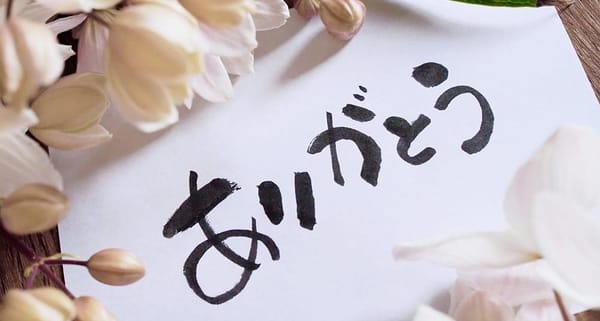12 Polite Japanese Phrases to Reduce Tension at Work
Feeling tension at work in Japan? These 12 polite Japanese phrases can ease awkward moments, smooth communication, and build trust — without losing your voice. Keep them in your pocket for a calmer, kinder workplace.

We’ve all had that moment — a tense conversation, an awkward pause, or a situation where someone seems a little… off. In Japan, where harmony and smooth interactions are highly valued, what you say (and how you say it) can make all the difference.
Whether you’re navigating a tight deadline, receiving unexpected feedback, or needing to smooth over a small misunderstanding, knowing the right polite phrases — those little “magic words” — can help melt tension and build trust.
Here’s your cheat sheet of calming, tension-diffusing expressions that work like a warm cup of tea on a stressful day.
🌸 What Makes a Phrase “Magic” in Japanese?
In Japanese culture, polite language (keigo) isn’t just about following rules. It’s about signaling respect, humility, and awareness of the other person’s position or feelings. The right words — even short ones — can instantly soften a situation and keep things flowing gracefully.
These phrases aren’t just for formal occasions. You can use them every day to maintain smooth communication with colleagues, superiors, clients, or even friends.
💬 Phrases That Smooth Things Over Instantly
1.「ご無理をなさらずに」go muri o nasarazu ni
“Please don’t push yourself.”
A kind way to acknowledge someone’s hard work or stress. Especially appreciated when someone looks tired or overburdened.
2.「お忙しいところ恐れ入りますが」o isogashī tokoro osoreirimasuga
“I’m sorry to bother you while you’re busy, but…”
This softens the impact of a request or interruption and shows empathy for the other person’s workload.
3.「お気持ちお察しします」o kimochi o sasshi shimasu
“I understand how you must feel.”
A thoughtful way to acknowledge someone’s emotional state, especially during disappointment or conflict.
4.「何かお手伝いできることがあれば、いつでも言ってください」nanika otetsudai dekiru koto ga areba, itsu demo itte kudasai
“If there’s anything I can help with, please let me know anytime.”
This phrase shows generosity and teamwork — without being pushy.
5.「あまりお気になさらないでくださいね」amari oki ni nasaranaide kudasai ne
“Please don’t worry too much about it.”
Useful when someone apologizes too much or feels guilty about something minor.
🔁 When You Make a Mistake
Mistakes happen — and how you respond can leave a lasting impression. These phrases help you apologize sincerely, but with grace:
6.「ご迷惑をおかけして申し訳ありません」gomeiwaku o okake shite mōshiwakearimasen
“I sincerely apologize for the trouble caused.”
7.「今後はこのようなことがないよう気をつけます」kongo wa kono yōna koto ga nai yō kiwotsukemasu
“I’ll make sure this doesn’t happen again going forward.”
These statements are humble but forward-looking — perfect for maintaining professionalism and accountability.
🙆♀️ To Defuse a Slightly Awkward Moment
Sometimes a little humour or humility can lighten the mood — especially in informal conversations.
8.「すみません、ちょっと緊張してます…」sumimasen, chotto kinchō shitemasu…
“Sorry, I’m a little nervous…”
This small admission can instantly humanize you and break the ice.
9.「うまく説明できるかわかりませんが…」umaku setsumei dekiru ka wakarimasenga…
“I’m not sure I can explain this well, but…”
A soft way to lead into your thoughts without sounding overly confident.
10.「勘違いしていたかもしれません」kanchigai shite ita kamo shiremasen
“I might have misunderstood.”
Instead of blaming someone else, this phrase takes the pressure off and keeps conversations collaborative.
📌 When You Need a Reset Button
If a conversation feels a little off, or if you’re sensing tension in the room, use one of these “reset phrases” to start fresh:
11.「一度確認させていただいてもよろしいでしょうか?」ichido kakunin sasete itadaite mo yoroshīdeshou ka?
“Would it be alright if I double-checked something?”
This shows your care for accuracy and invites calm, open communication.
12.「今の点について、少し時間をいただけますか?」ima no ten ni tsuite, sukoshi jikan o itadakemasu ka?
“Could I have a bit of time to think about that point?”
Gives you room to reflect — without rejecting the conversation outright.
💡 Culture Tip: It’s Not Just What You Say
The same phrase can feel completely different depending on your delivery. Here’s how to make your “magic words” work their full charm:
- Tone: Keep it warm, calm, and steady.
- Pace: Don’t rush. A slower delivery shows you’re thoughtful and not agitated.
- Body Language: Smile gently, nod occasionally, and keep eye contact soft.
If you’re unsure how to say a certain phrase in Japanese, even a simple “ありがとうございます” or “助かります” with sincerity can go a long way. In Japan, your vibe speaks as loudly as your words.
You Can Be Both Kind and Clear
Sometimes women (especially foreigners) worry that if they’re “too nice,” they won’t be taken seriously. But kindness isn’t weakness. Using polite language doesn’t mean you’re holding back — it means you care enough to build a bridge instead of a wall.
These phrases don’t hide your opinions — they just wrap them in care. So keep these magic words in your pocket. Pull them out when things feel tense. You’ll be surprised how much smoother your workdays become — and how much easier it is to connect, no matter where you’re from.



